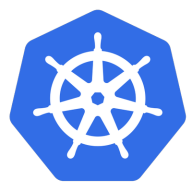

Kubernetes and Nutanix Kubernetes Engine (NKE) are both solutions in the container orchestration space. Kubernetes stands out due to its robust feature set like scalability and flexibility, whereas NKE shines by simplifying initial deployments with seamless Nutanix integration.
Features: Kubernetes offers self-healing capabilities, scalability, and native service support across multiple cloud providers. In contrast, NKE emphasizes simplicity and user-friendly cluster creation, integrating well with Nutanix platforms and focusing on easy deployments.
Room for Improvement: Kubernetes could benefit from a more intuitive interface and improved security integration, reducing the need for third-party add-ons. NKE, meanwhile, might need enhancements in replication and disaster recovery, as well as better scalability support for complex environments.
Ease of Deployment and Customer Service: Kubernetes provides robust community support and flexible deployment across cloud environments but requires advanced management skills. NKE, focused on on-premises use, simplifies the deployment process within Nutanix ecosystems with direct vendor support enhancing user experience and issue resolution.
Pricing and ROI: Kubernetes, being open-source, eliminates licensing costs, but may involve expenses related to third-party services. NKE is cost-effective within Nutanix setups but might incur additional costs for remote deployments. Both offer potential for high ROI through efficient application management and resource utilization.


Kubernetes (K8s) is an open-source system for automating deployment, scaling, and management of containerized applications.
It groups containers that make up an application into logical units for easy management and discovery. Kubernetes builds upon 15 years of experience of running production workloads at Google, combined with best-of-breed ideas and practices from the community.
We monitor all Container Management reviews to prevent fraudulent reviews and keep review quality high. We do not post reviews by company employees or direct competitors. We validate each review for authenticity via cross-reference with LinkedIn, and personal follow-up with the reviewer when necessary.